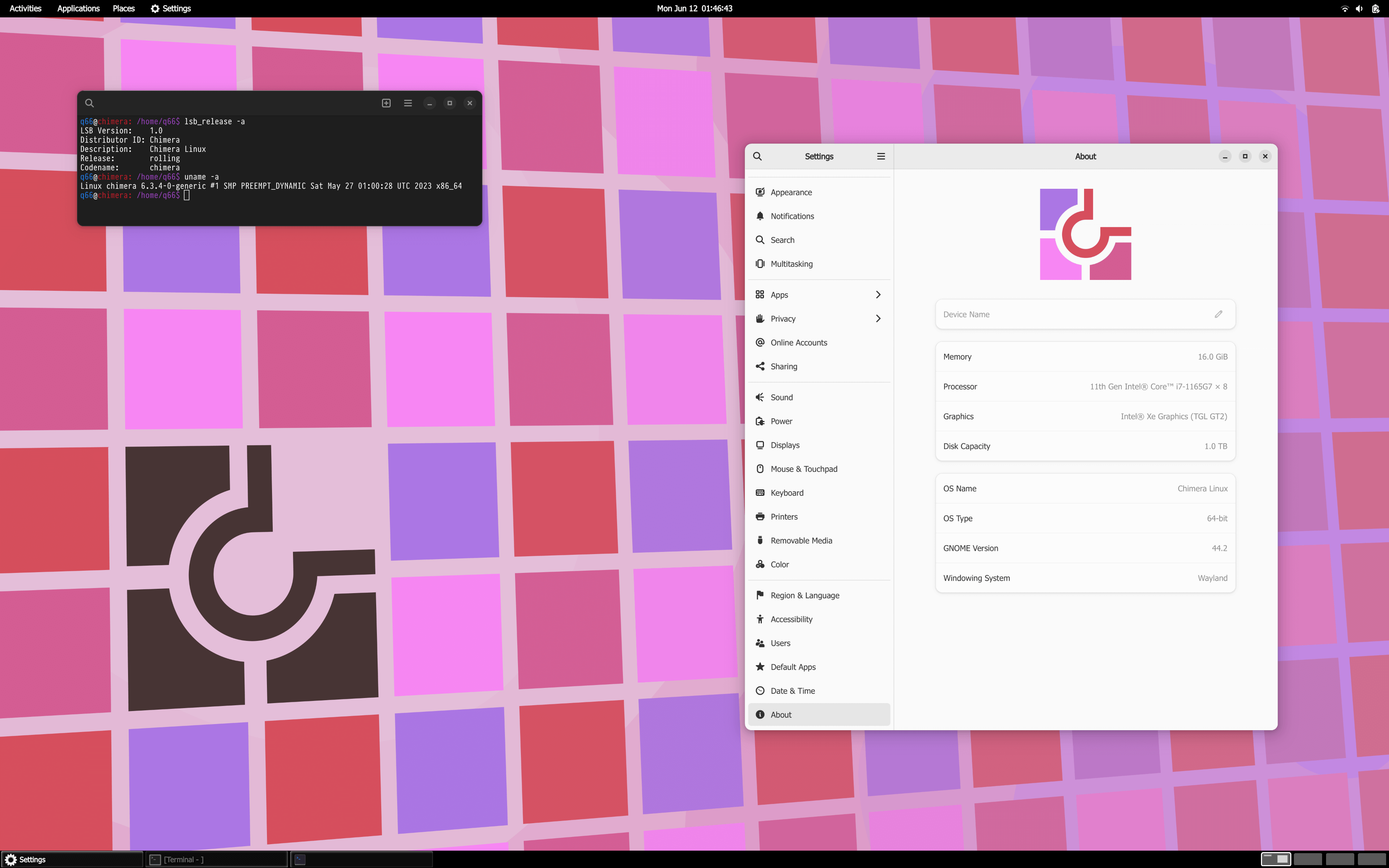Chimera is a general-purpose Linux-based OS born from unhappiness with the status quo. The project aims to create a system that is simple, transparent, and easy to pick up, without having to give up practicality and a rich feature set.
It is built from scratch using novel tooling, approaches, and userland. Instead of intentionally limiting ourselves, Chimera strives to achieve both conceptual simplicity and convenience with careful and high quality software design.
Chimera comes with a novel userland setup based on FreeBSD core tools (replacing coreutils and related projects like findutils, diffutils, sed or grep. Chimera uses binary packaging. The choice of package manager is apk-tools, known from Alpine Linux. Chimera is not a fork of Alpine, and uses the next-generation version of apk-tools, known as APKv3, being the first distribution to practically deploy it at this scale.
Various CPU architectures are supported by Chimera to avoid monoculture and to help catch bugs. It is already possible to use the system with binary repositories on architectures such as AArch64, little endian and big endian POWER, 64-bit RISC-V and obviously the common x86_64.

| Working state: | Active |
| Desktop: | GNOME, KDE Plasma |
| Init Software: | dinit |
| Package Management: | APK |
| Release Model: | Rolling |
| Platforms: | aarch64, ppc64, ppc64le, riscv64, x86_64 |
| Home Page: | chimera-linux.org |
| Developer: | Chimera Linux developers |
| This article is part of our Big List of Active Linux Distros which is currently under development. |
What's a Linux distribution ("distro")? |
| A distro provides the user with a desktop environment, preloaded applications, and ways to update and maintain the system. Each distro makes different choices, deciding which open source projects to install and provides custom written programs. They can have different philosophies. Some distros are intended for desktop computers, some for servers without a graphical interface, and others for special uses. Because Linux is an open source operating system, combinations of software vary between Linux distros. |
